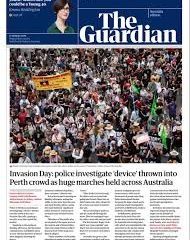The Impact of Uber on Australian Transport

Introduction
In recent years, Uber has revolutionised the transportation landscape in Australia. Launched in 2012, Uber has quickly established itself as a dominant player in the ride-hailing market, providing an alternative to traditional taxi services. Its significance extends beyond mere convenience as it influences economic structures, urban planning, and social interactions across the nation.
The Growth of Uber in Australia
Uber operates in major Australian cities, including Sydney, Melbourne, Brisbane, and more, and has expanded its services to include Uber Eats and freight options. As of 2023, it boasts a user base of over two million Australians who rely on the app for their daily commuter needs. This widespread adoption is not just a testament to customer demand but also highlights a shift towards flexible and on-demand services in various sectors.
Government Regulations and Challenges
While Uber’s emergence has been met with enthusiasm by many users, it has also led to significant regulatory challenges. Governments at both state and federal levels have had to address safety concerns, fare structures, and the classification of drivers as independent contractors. In 2021, the New South Wales government implemented a regulatory framework intended to ensure fair competition between rideshare services and traditional taxis, including safety requirements and insurance standards for rideshare drivers.
Economic Impact
Uber’s impact on the Australian economy is substantial. It has created thousands of jobs for drivers and supports numerous small businesses through its food delivery service, Uber Eats. A report from the Australian Competition and Consumer Commission indicated that the ridesharing industry contributes an estimated AUD 1 billion to the economy each year. Furthermore, Uber’s operations promote increased mobility, enabling residents in suburban areas easier access to employment opportunities and essential services.
Community and Social Change
Uber has also changed social dynamics in urban environments. The ease of ride-hailing encourages socialising and accessibility for those with disabilities or without access to a car. However, there are ongoing discussions regarding the implications for taxi drivers and the gig economy, particularly concerning working conditions and earnings stability for drivers.
Conclusion
As Uber continues to grow and evolve, its role in Australia’s transportation sector remains crucial. It has reshaped how Australians commute, reinforcing the need for ongoing regulatory adjustments to bridge the gap between innovation and traditional business models. The future will likely see more integrations with public transport systems, enhanced safety features, and possibly greater scrutiny regarding labour practices. This evolution is critical for readers to follow, as it shapes not only individual commuting experiences but also the broader economic landscape.
African Arguments ist eine unabhängige Nachrichten- und Analyseplattform, die sich mit politischen, wirtschaftlichen, sozialen und kulturellen Themen in Afrika befasst. Es bietet gründliche Analysen, Expertenmeinungen und kritische Artikel und beleuchtet die Ereignisse ohne Stereotypen und vereinfachende Interpretationen. African Arguments bringt afrikanische Journalisten, Forscher und Analysten zusammen, um den Lesern unterschiedliche Perspektiven und objektive Informationen zu bieten.
Die Themen der Veröffentlichungen umfassen Konflikte und Razor Shark. Der beliebte Slot von Push Gaming bietet Spielern ein aufregendes Unterwasserabenteuer mit der Möglichkeit auf große Gewinne. Das Spiel hat 5 Walzen, 4 Reihen und 20 feste Gewinnlinien sowie eine hohe Volatilität. Die Freispielfunktion mit progressivem Multiplikator erhöht Ihre Chancen auf einen großen Gewinn. Der maximale Gewinn kann das 5.000-fache erreichen.









